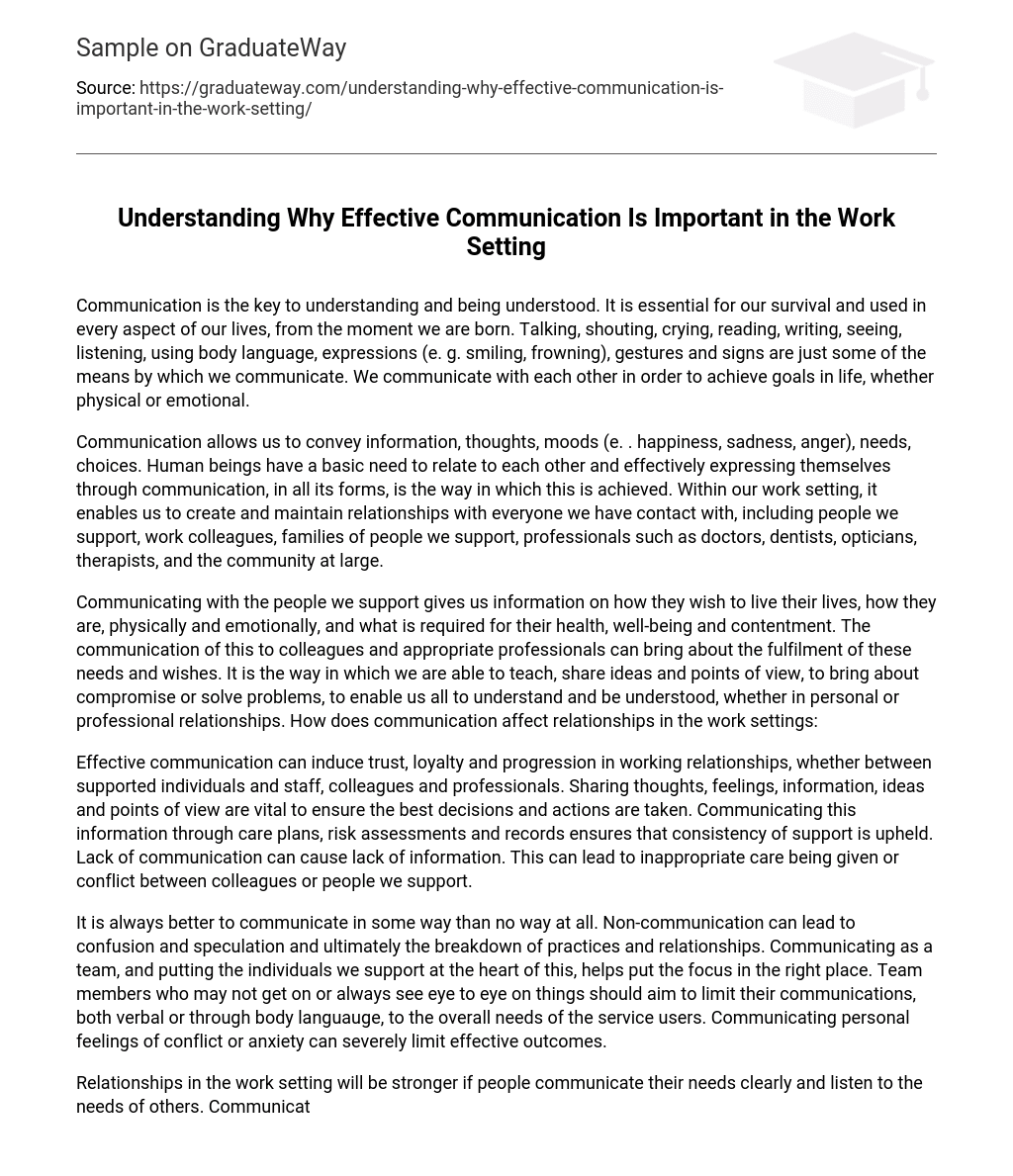Communication is the key to understanding and being understood. It is essential for our survival and used in every aspect of our lives, from the moment we are born. Talking, shouting, crying, reading, writing, seeing, listening, using body language, expressions (e. g. smiling, frowning), gestures and signs are just some of the means by which we communicate. We communicate with each other in order to achieve goals in life, whether physical or emotional.
Communication allows us to convey information, thoughts, moods (e. . happiness, sadness, anger), needs, choices. Human beings have a basic need to relate to each other and effectively expressing themselves through communication, in all its forms, is the way in which this is achieved. Within our work setting, it enables us to create and maintain relationships with everyone we have contact with, including people we support, work colleagues, families of people we support, professionals such as doctors, dentists, opticians, therapists, and the community at large.
Communicating with the people we support gives us information on how they wish to live their lives, how they are, physically and emotionally, and what is required for their health, well-being and contentment. The communication of this to colleagues and appropriate professionals can bring about the fulfilment of these needs and wishes. It is the way in which we are able to teach, share ideas and points of view, to bring about compromise or solve problems, to enable us all to understand and be understood, whether in personal or professional relationships. How does communication affect relationships in the work settings:
Effective communication can induce trust, loyalty and progression in working relationships, whether between supported individuals and staff, colleagues and professionals. Sharing thoughts, feelings, information, ideas and points of view are vital to ensure the best decisions and actions are taken. Communicating this information through care plans, risk assessments and records ensures that consistency of support is upheld. Lack of communication can cause lack of information. This can lead to inappropriate care being given or conflict between colleagues or people we support.
It is always better to communicate in some way than no way at all. Non-communication can lead to confusion and speculation and ultimately the breakdown of practices and relationships. Communicating as a team, and putting the individuals we support at the heart of this, helps put the focus in the right place. Team members who may not get on or always see eye to eye on things should aim to limit their communications, both verbal or through body languauge, to the overall needs of the service users. Communicating personal feelings of conflict or anxiety can severely limit effective outcomes.
Relationships in the work setting will be stronger if people communicate their needs clearly and listen to the needs of others. Communicating in a calm, non-confrontational way encourages people to connect with each other, promoting positive interaction and informed conclusions. Non-verbal communication is as important as verbal communication, whether between staff members or the people we support, particularly if they have limited verbal skills. Non-verbal communication can convey personality, attitudes, feelings, needs, likes and dislikes, and being aware of this in a work setting will lead to better relationships, practices and outcomes.





